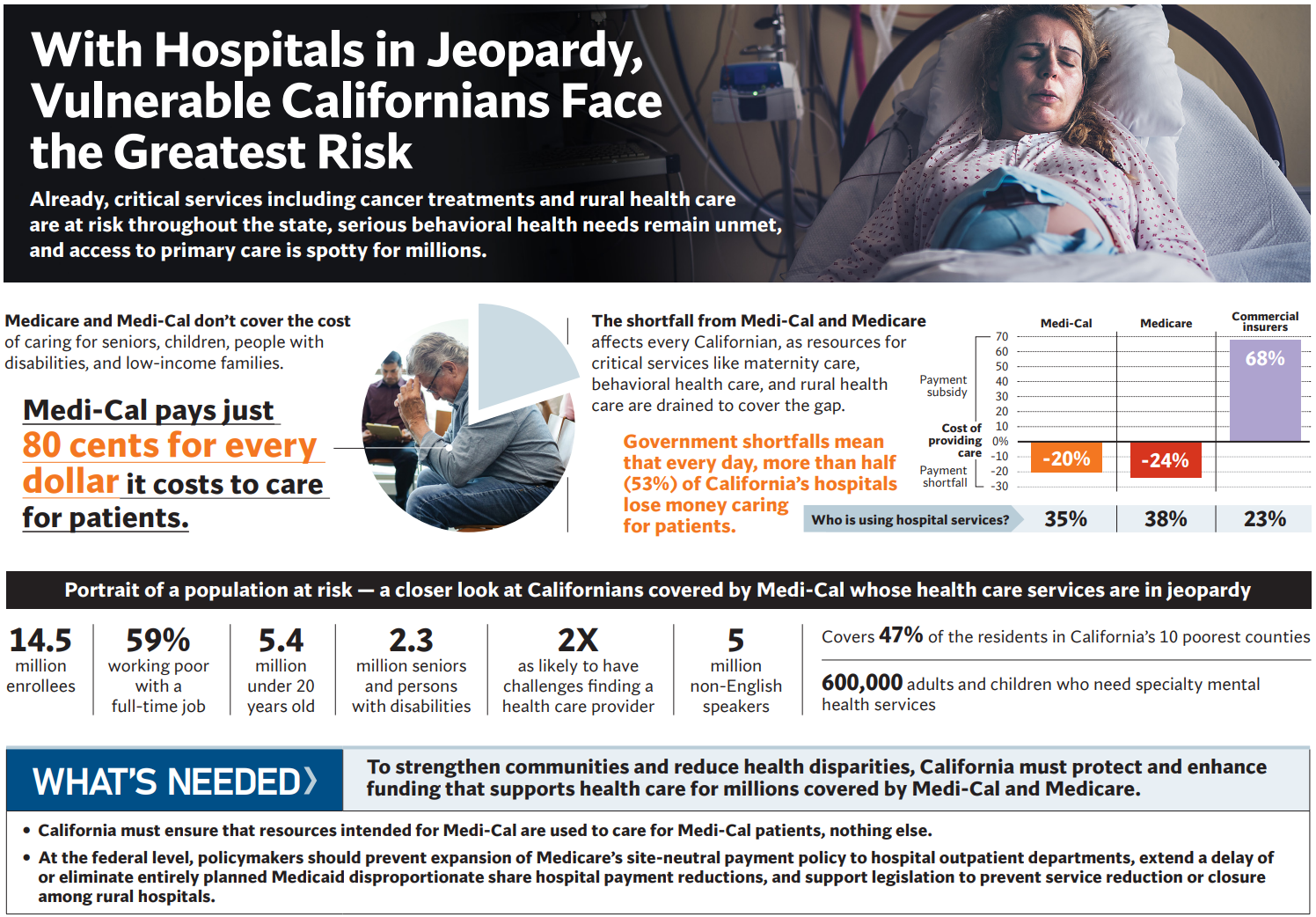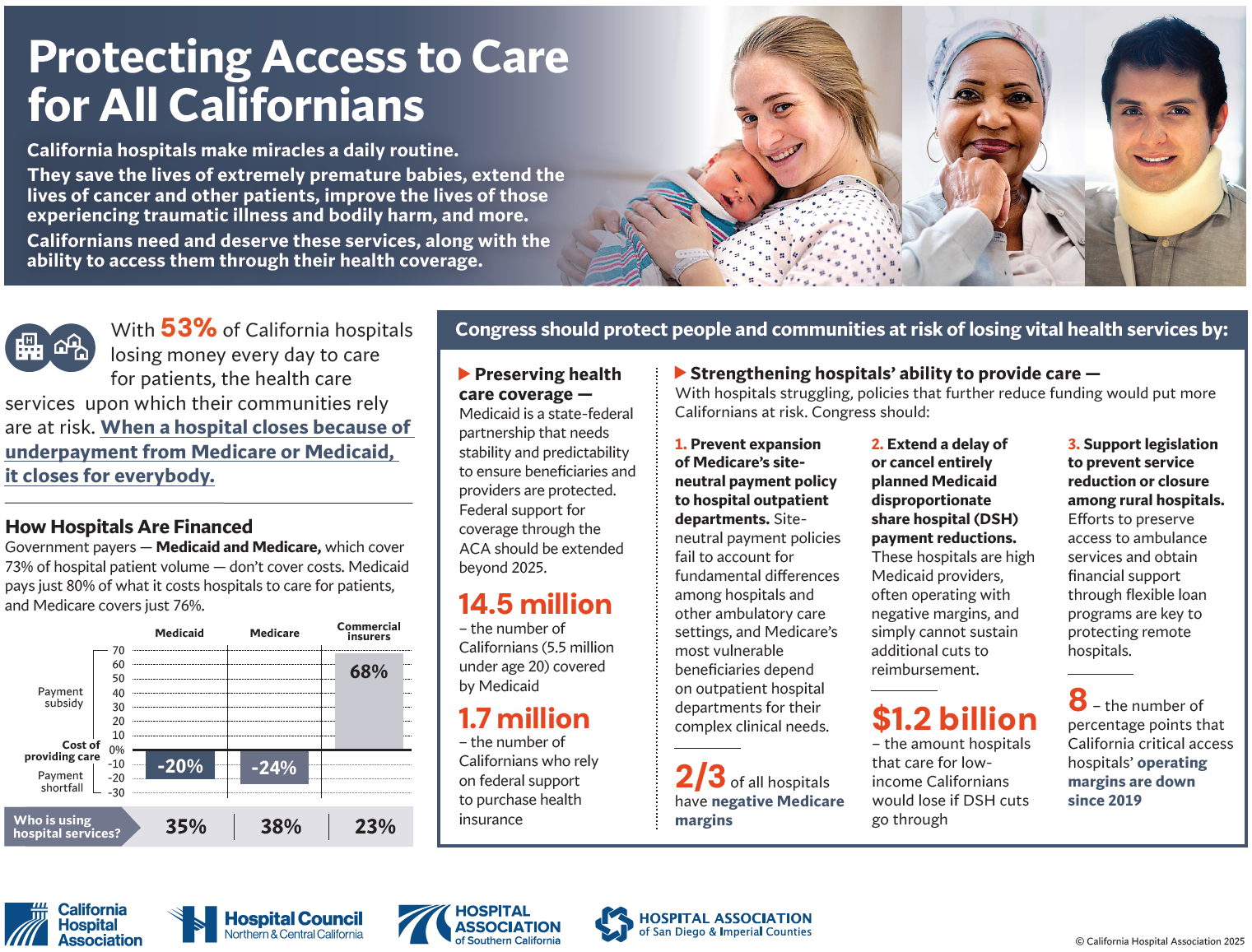About Finance & Reimbursement

Vulnerable Californians who rely on the care provided by California hospitals are at risk. Driven by skyrocketing costs for labor, pharmaceuticals, regulatory mandates, and more, 53% of all hospitals statewide lose money every day to deliver patient care.
That isn’t sustainable. And California is already seeing the frightening result: rural health care services being cut to the bone, severe behavioral health care needs not being met, and more.
TEAM Bundled Payment Final Rule Webinar – Participant Information
Over 100 California hospitals were selected to participate in the finalized Transforming Episode Accountability Model (TEAM). Additionally, current participants in other Medicare bundled payment models can opt into TEAM which begins in January of 2026. The 30-day bundled payment model will hold selected hospitals accountable for the cost and quality of certain high-volume surgical procedures […]
Infographic: Securing Hospitals

Issue Brief: Hospitals Need State, Federal Help to Protect Vital Health Care Services
Medicare and Medi-Cal underfunding have put the health care system on the precipice.
Key Messages: State, Federal Support Needed to Protect At-Risk Health Care Services
California hospitals face growing challenges with government underfunding having the biggest impact.
Infographic: Protecting Access to Care for All Californians

CHA Encourages Members to Participate in the Vitality Index Payer Scorecard
What’s happening: CHA is endorsing member participation in the Vitality Index Payer Scorecard, which will provide critical information to support CHA’s advocacy to hold insurers accountable for timely and accurate reimbursement.
What else to know: The CHA Board of Trustees has endorsed this tool, which will automatically draw de-identified claims and remittance information from hospitals without requiring additional reporting or surveys.
Dual Eligible Medi-Cal Managed Care Enrollment — Participant Information
CalAIM is standardizing Medi-Cal coverage for people enrolled in both Medi-Cal and Medicare with changes for many Californians starting next year. On January 1, 2023, those enrolled in Medicare and Medi-Cal, who currently receive their Medi-Cal benefits through traditional fee-for-service, will have their Medi-Cal benefits transitioned to Medi-Cal managed care statewide, which could mean changes […]
Hospital Finance Week: Medi-Cal Updates/Hospital Fee Program
Get intel on the latest changes to the Hospital Fee Program and CHA’s perspective on recent Medi-Cal updates. Topics to be covered include: Review of the new Hospital Fee Program (Program 7) Medi-Cal Reform (CalAIM) Medi-Cal Managed Care Changes
Treating Opioid Use Disorder in Acute Care Hospitals
Opioid abuse is a long-standing problem in California.
The substance use disorder (SUD) crisis might seem insurmountable, but the CA Bridge Program has developed a model of care that saves lives and helps patients with SUDs get back on track. The 24/7 program is built upon three pillars: rapid access to medication-assisted treatment (MAT), welcoming and destigmatized care and specially trained substance use navigators (SUNs) that connect patients to ongoing care and support.